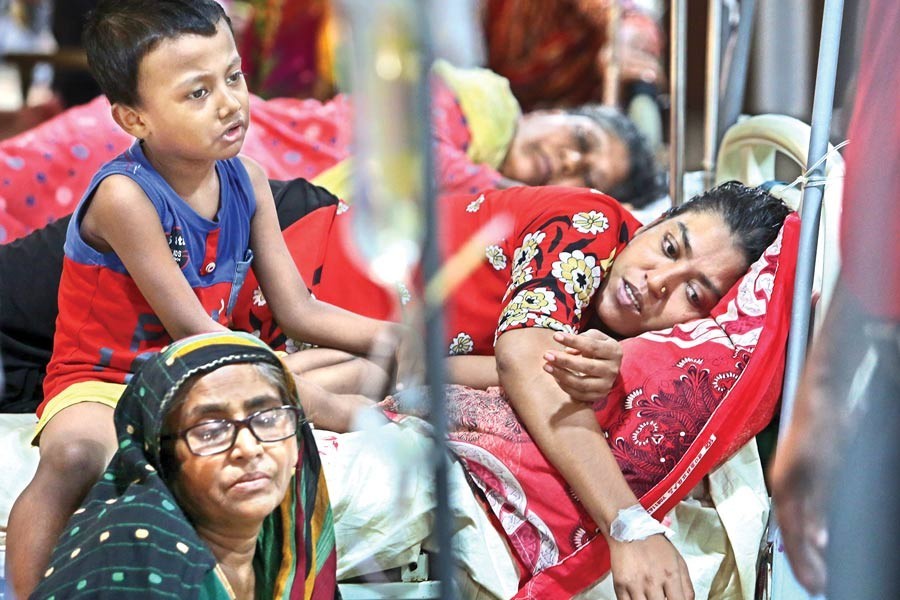Bangladesh needs to implement an integrated mosquito management system to deal with the people carrying various mosquito-borne diseases including dengue, experts said.
They also said an integrated mosquito management system has four key components - environmental management, biological control, chemical control, and community involvement.
However, Bangladesh is applying only chemical control for checking Aedes mosquito, which is not effective at all, the experts opined.
They noted that Bangladesh does not have any extensive research on mosquito, although the country has long been a fertile land for mosquito breeding due to its tropical weather.
They think that the government should seriously invest in conducting in-depth research on the country's mosquito situation, as mosquito-borne diseases are changing every year.
Entomologist and Professor of Zoology at Jahangirnagar University Dr Kabirul Bashar said it is not possible to manage Aedes or other mosquito population in a country like Bangladesh without adequate research.
"The tropical and sub-tropical countries, like Bangladesh, are highly prone to have Aedes and many other mosquito species."
The country should follow success stories of other such countries or cities in managing mosquito population growth.
Dr Bashar noted that Kolkata and Singapore are good examples for Bangladesh, where integrated mosquito management system was applied, and they were very successful in managing mosquitoes.
He also said the city corporations are now applying chemical control only for destroying mosquitoes.
Implementing the three other components needs long-term planning, so the government should start the planning now.
Prof Bashar further said one female Aedes mosquito lays 100 to 150 eggs at a time, which take two to three days to become larva. The next stage is pupa that takes seven to ten days, and then a pupa becomes an adult mosquito in two to three days.
He said Aedes is weaker than other mosquito species. Only female Aedes bites people, because it needs blood protein for egg maturation and development.
But, it can bite only four to five people and infect with dengue virus in its 21-day lifespan, he added.
Head of Entomology Department at Bangladesh Agricultural University Professor Dr Mohammad Shaef Ullah said eggs of Aedes live for a long time - around one year or more.
"Aedes can lay eggs anywhere. When it gets water, the eggs give forth larva, so it is very dangerous."
Eggs can become adult mosquitoes even in a little quantity of clear water on a dried leave.
He also said a large number of people will move across the country during the Eid-ul-Azha festival.
So, with them Aedes mosquitoes can travel from the cities to the rural areas. There are many places in the villages, where eggs of Aedes may survive and reproduce around the year.
Dr Shaef Ullah opined that a new kind of dengue stain has come to Bangladesh from some other countries. The stain was never seen in the country before.
It has happened, as people now travel frequently from one place to another, so diseases are shifted with them, he added.
A long-term planning, awareness campaign, and community involvement are effective ways for checking mosquito population.
He also suggested the government to import insecticides from recognised companies and countries.
Dhaka University Zoology Department Lecturer Shanjida Sultana said insecticides cannot destroy eggs, and it is the most dangerous part of managing Aedes mosquitoes.
She also blamed new architectural designs in the urban areas that keep a lot of small empty places in buildings, where rainwater remains stagnated.
"Our densely populated urban setup may be one of the reasons behind the massive rise of Aedes population at present."
Aedes is not new in Bangladesh. There were researches on Aedes here even in 1970s, she concluded.
In the worst dengue outbreak in the country's history, Bangladesh has seen at least 36,668 dengue cases and 74 deaths nationwide between July 01 and August 09 this year, according to the Directorate General of Health Services (DGHS).


